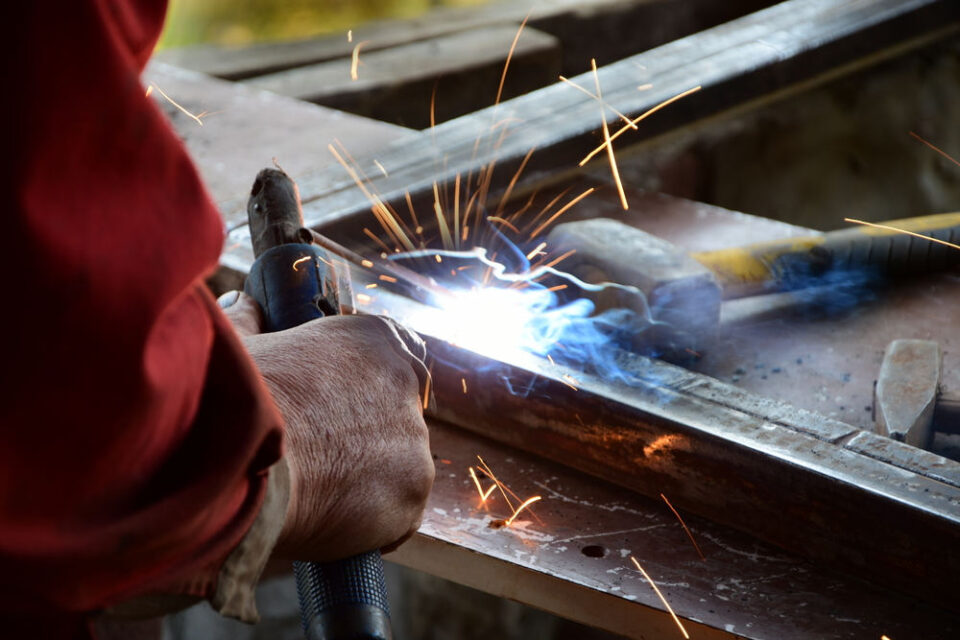Steel has become a popular choice for several works. It finds application in construction and manufacturing. Owing to its durability and strength, steel is one of the most preferred choices by contractors. Steel fabrication is creating structures and components from raw steel materials. This process is used in various industries, including construction, manufacturing, and transportation. This article will explore the importance of steel fabrication and its impact on various industries. So, let’s get started-
Table of Contents
Why Is Steel Fabrication Important?
Steel fabrication is a process that is essential for various industries, such as construction, manufacturing, and transportation. From skyscrapers to bridges, steel is the backbone of many of the world’s most iconic buildings.
From its durability and strength to its environmental sustainability, steel fabrication plays a vital role in ensuring the safety and well-being of society. In this section of the article, we will uncover the key benefits of steel fabrication and why it is an important process that will continue to shape the future of various industries. Read on to know more in detail to have an overall better understanding!
- Construction Industry– steel finds widespread application in the construction industry. Steel fabrication ensures stronger building construction and durable structures. From skyscrapers to bridges, steel is the backbone of many of the world’s most iconic buildings. Steel fabrication allows for precise and accurate construction, which is essential for ensuring the safety of both workers and the general public. Additionally, steel is a highly recyclable material, making it an environmentally friendly choice for construction projects.
- Manufacturing Industry– The manufacturing industry also heavily relies on steel fabrication. Steel is used to produce a wide range of products, including machinery, automotive parts, and appliances. Steel fabrication allows for the precise and efficient production of these products, which is essential for meeting the high demand of consumers. Additionally, steel fabrication enables manufacturers to create custom parts and components, which is crucial for innovation in the industry.
- Transportation Industry– The transportation industry also heavily relies on steel fabrication. Steel is used in producing cars, trucks, trains, and other vehicles. Steel fabrication allows for the precise and efficient production of these vehicles, which is essential for meeting the high demand of consumers. Additionally, steel fabrication enables manufacturers to create custom parts and components, which is crucial for innovation in the industry.

Top Benefits of Steel Fabrication
Steel fabrication is creating structures and components from raw steel materials. It involves cutting, bending, welding, and assembling steel to create a wide range of products, from large structures like buildings and bridges to small components like machinery and automotive parts.
Steel fabrication is essential for various industries, such as construction, manufacturing, and transportation. Continue reading further until the end to have an overall better understanding!
- Durability: Steel fabrication allows for creating strong and durable structures and products that can withstand the test of time.
- Safety: Precise and accurate construction enabled by steel fabrication ensures the safety of workers and the public.
- Corrosion-resistant: Another benefit of steel is that it is corrosion-resistant, and hence it lasts longer compared to other options.
- Environmental Sustainability: Steel is highly recyclable, making it an environmentally friendly choice for construction and manufacturing projects.
- Precision and Efficiency: Steel fabrication allows for precise and efficient production of structures and products, which is essential for meeting the high demand of consumers.
- Customization: Steel fabrication enables manufacturers to create custom parts and components, which is crucial for innovation in various industries.
- Cost-Effectiveness: Steel is a relatively inexpensive material, making it a cost-effective choice for construction and manufacturing projects.
- Versatility: Steel can be fabricated into a wide range of structures and products, making it versatile for various industries.
- Low Maintenance: Steel structures and products require minimal maintenance, making them cost-efficient in the long run.
- Flexibility: Steel can be easily modified and repurposed, making it flexible for various applications.
- Aesthetics: Steel can be fabricated into various shapes and sizes, making it a versatile choice for creating visually pleasing structures and products.
Conclusion
In conclusion, steel fabrication is critical for the construction, manufacturing, and transportation industries. It allows for the creation of strong, durable, and precise structures and products that are essential for the safety and well-being of society.
With the increasing demand for sustainable and environmentally friendly products, steel fabrication is becoming more important than ever. An important process will continue to shape the future of various industries.

